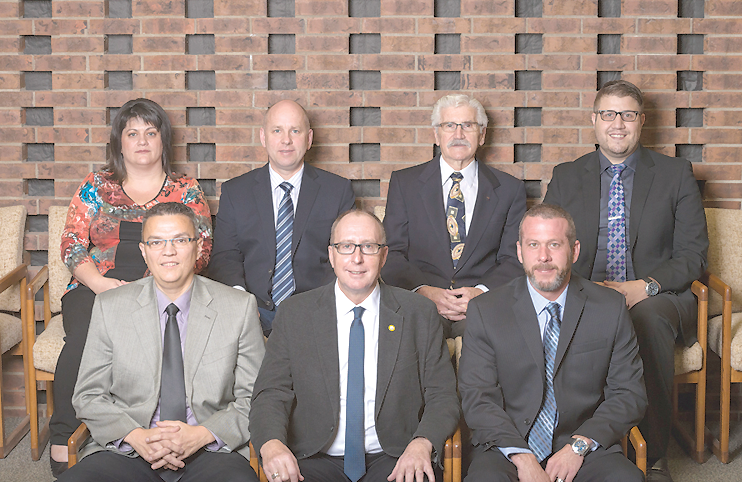The next municipal and school board election will be happening in 2020, but not on the date that was initially scheduled.
The provincial government announced last week that it had moved its next provincial election to Oct. 26, 2020.
The municipal and school board election will instead happen on Nov. 9 of that year. It’s going to be on a Monday, as opposed to the traditional Wednesday date, because Remembrance Day is on a Wednesday in 2020.
There had been discussion of having the next civic election in 2021, but those plans appear to have been abandoned.
Mayor Roy Ludwig said local city council gave the issue some thought, and said previously they would grudgingly back a five-year term.
“It definitely wasn’t overwhelming support,” said Ludwig. “After giving it some thought, our council said ‘If it has to be, it has to be. We didn’t have consultation on this particular date that they’ve changed it to, but we’ll try to make it work.”
The mayor believes other municipal governments in Saskatchewan were opposed to the change.
“I know quite a few of the larger cities especially did not agree with it,” said Ludwig.
He also found out about the government’s decision through the media.
Ludwig would have rather seen the provincial government keep the civic election on its original date of Oct. 28, 2020, and to see the province have an election in September or November.
City clerk Judy Pilloud also voiced a few concerns with the new election dates. The first is that the majority of election workers are snowbirds who are usually gone by the date the provincial government has selected for the municipal election.
“A lot of snowbirds would like the ability to vote before they leave for their winter homes,” said Pilloud. “Typically those are people we can count on. They are retired and dedicated and love to sit at the polls.”
Another concern is the city budget. It is usually completed in the last week of November, and if a new council is being sworn after Nov. 9, they will need time to understand what the city does operationally.
Pilloud conceded the new council will be elected only 12 days later than expected, but by the time they’re declared elected and sworn-in, it won’t leave much time for the budget.
“If you have any hitch in your election, this will throw the timing off. If there’s a tie vote, or if you have to do a recount, that just delays everything longer. Not that we’ve ever had this happen in the past, but I just like to be prepared when I do things.”
If a second call for nominations is needed for mayor, councillor or school board trustee, then it pushes the date of the vote even closer to Christmas.
“Most people don’t want to be out, going to the polls at Christmas time. They would rather be at home with their families.”
Other cities have found themselves in situations in which they haven’t had enough candidates for an election.
She is also concerned about the effects of having the elections so close together, because the rules and regulations are so different between the province and municipal elections.
“That’s when people get confused on what requirements are for voting,” said Pilloud.
The city doesn’t enumerate, unlike provincial and federal governments, and she is worried people will think the procedure for voting in the civic election will be the same as federal or provincial.
In a news release, Premier Scott Moe said he received a clear message from municipalities and school boards about a desire to keep the civic election in 2020.
“We believe we have reached a reasonable compromise that will allow local officials time to prepare for these changes,” said Moe.
As for the school boards, Saskatchewan School Boards Association president Shawn Davidson said the association is pleased election dates have been chosen.
“We believe that this change will be less challenging than other options that were considered and we look forward to ongoing partnership and collaboration,” said Davidson. “Locally elected boards will continue to work hard to represent the families and communities that elect us.”
Moe noted that in 1991 and 2003, the municipal and provincial elections were held about two weeks apart. He said the government decided to have the provincial election first because moving the provincial election back would make it difficult, if not impossible, to hold a fall legislative session before Christmas.



